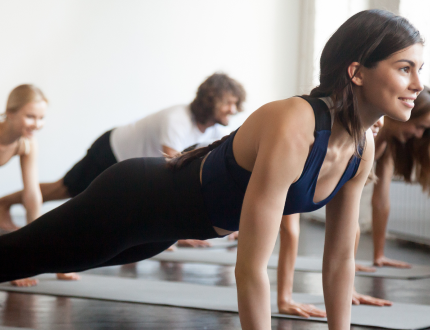Why Sleep Is the Secret Ingredient to Your Fitness Success
06 Apr 2025

Why Sleep Is Key for Your Workout Success | Fitness First Philippines
Updated October 2025
In a world that celebrates the hustle, sleep often gets sacrificed. But if you’re serious about achieving your fitness goals,
it’s time to rethink rest. Quality sleep is the foundation of recovery, performance, and long-term health and skipping it could be holding you back in the gym.
1. The Golden Rule: 7–8 Hours of Sleep
According to sleep expert Dr. Matthew Walker, “Sleep is the single most effective thing we can do to reset our brain and body each day.”
For most adults, 7–8 hours per night is ideal for physical recovery and muscle repair.
Less than 7 hours can lead to slower reflexes, poor focus, and reduced energy — all of which can affect your workout quality.
2. Oversleeping Can Also Hold You Back
Too much of a good thing? It’s possible. Oversleeping, or hypersomnia, has been linked to fatigue and slower metabolism.
Finding your balance is key — enough rest to recharge, but not so much that it affects your daily rhythm.
3. Consistency Is the Real Sleep Hack
As Dr. Michael Breus (“The Sleep Doctor”) notes, your body thrives on consistency. Try to go to bed and wake up at the same time daily, even on weekends. This strengthens your circadian rhythm, improves melatonin regulation, and enhances recovery from workouts.
Did You Know?
With FitPass, you can enjoy a commitment-free fitness experience — access any club or class at your own pace. Buy credits in bundles of 5, 10, 20, 30, or 50 and use them whenever you train. Rest better knowing your fitness routine fits your lifestyle!
4. Exercise and Sleep: The Perfect Duo
Regular exercise improves sleep quality by reducing stress and promoting deeper rest cycles. Just 30 minutes of moderate activity — whether it’s a run, yoga session, or strength workout — can make falling asleep easier and boost your recovery overnight. Try to finish workouts at least 3 hours before bedtime to avoid overstimulation.
Hate Working Out Alone?
Then Group Fitness classes are for you. More than just high‑energy workouts, group classes can be your reset button, your support crew, and your next favourite habit.
Read more5. Nutrition and Habits That Support Sleep
What and when you eat affects your sleep. Avoid caffeine, alcohol, and heavy meals within 4–6 hours of bedtime.
If you need a snack, go for something light and protein-rich, like yogurt or a banana.
And don’t forget a digital detox — blue light from screens can interfere with your body’s sleep signals.
6. Don’t Just Sleep — Recover
True rest is more than hours in bed. Incorporate mindfulness, stretching, and downtime into your routine.
Short breaks throughout the day reduce stress and improve your ability to rest deeply at night.
Train Smart, Sleep Well, Perform Better
When it comes to fitness, sleep isn’t optional — it’s a performance enhancer. Your muscles recover, your brain resets, and your energy stores refill while you rest. So next time you plan your training schedule, make sure sleep gets the same priority as your workout.
Maximize Recovery with Personal Training
Get the right balance between training intensity and recovery with guidance from our Certified Fitness Coaches. Our Personal Training programs are designed to help you train smarter, recover faster, and sleep better.
Frequently Asked Questions
How does sleep affect workout recovery?
During deep sleep, your body releases growth hormone, which helps repair muscles and replenish energy stores — key to progress and recovery.
Can too little sleep impact muscle growth?
Yes. Inadequate sleep reduces protein synthesis and slows recovery, which can hinder strength gains and endurance performance.
When is the best time to work out for better sleep?
Morning or afternoon workouts are ideal. Intense late-night training can increase adrenaline and make it harder to fall asleep.



